

Four days of performances, dialogues, interviews, shared physical practices and conversations about dance.
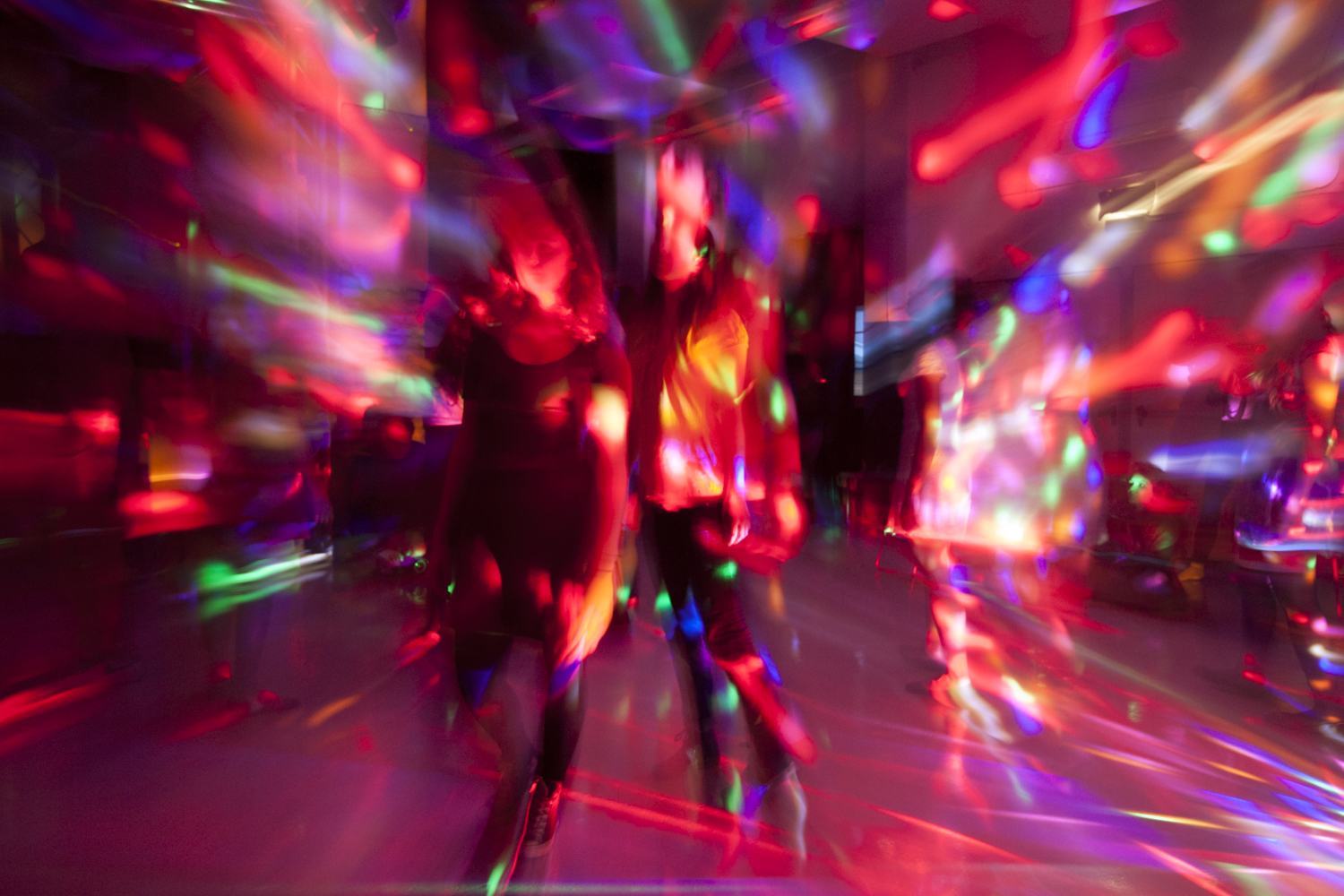
B. Motion hosted for the second time a group of EDN Carte Blanche dance artists and professionals. The format of the program has been maintained: a platform for exchange.
2020 is a challenging year for all of us. We experienced a collective emergency which forced us to re-consider our social structures, our presence in the global ecosystem, our self-perception as humankind.
The performing arts field is of course very much affected by the changes and limitations we are living through and is trying to re-define concepts such as presence, spaces and times to produce and present artworks.
This crisis put us in front of a crucial crossroads: either to surrender in front of the global scenario, or to look at limitations as opportunities and find new ways to inhabit the spaces designated for dance, both from a physical and a digital perspective.
To approach this present, it takes courage and leads towards the unknown, but it is crucial for us to explore new forms of dialogue and collaboration, asking ourselves what is our responsibility, how what we produce and share can be relevant for the time we live in and which traces will it leave for future generations.
This year, Operaestate Festival tried to develop a format giving an answer to this global scenario and to keep going, despite the restrictions and contingencies imposed by the pandemic emergency.
During the lockdown, the B. Motion team started a reflection on pivotal themes for the sector, questioning the accessibility of spaces traditionally designated for performing arts. It also addressed how to deal with the new rules to enter public spaces: now that a limited number of people is allowed to gather for an event, how to choose who is going to be your audience? How to guarantee intercultural and intergenerational dialogue among the audiences?
New processes of working together have been put in place, new dynamics and relations established. New values, visions, paths and forms of collaborations arose. The activation of the sense of responsibility among cultural operators and artists involved has been crucial in the exploration of new forms of dialogue and in structuring processes of co-imagination which could help people (physically isolated) to get connected again, both physically and artistically.
B. Motion Danza 2020 brought dance in the urban spaces and in the digital space: this edition was presented partly live, partly online, enabling local and international audiences to experience Bassano del Grappa and its stages on several layers.
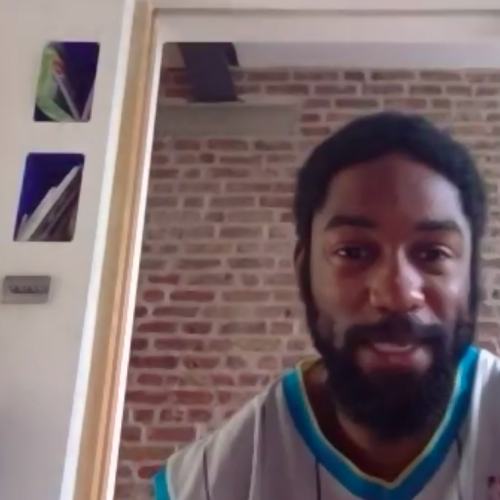
Dance in Urban and Digital Spaces - 4 days to create a digital shared space
The 4 days program combined:
The live performances presented this year were all outdoor, site-specific works, created for and within the festival, with a length thought specifically to be accessible both live and online. There were eight shows, structured as follows:
In this setting, B. Motion hosted for the second time a group of EDN Carte Blanche dance artists and professionals. The format of the program has been maintained: a platform for exchange. Its aims are to experience different perspectives about making and producing dance, to find inspiration and enlarge networks, and to inform one’s own practice by finding a space of encounter and sharing.
17 dance artists and professionals from 13 different dancehouses members of the EDN network were involved: Mitja Bravhar - Kino Šiška (Slovenia); Evelien van de Sanden - Dansmakers (Netherlands); Markéta Perroud – Tanec Praha (Czech Republic); Annette Van Zwoll – EDN freelance editor; Su Jin Kim – K3 Tanzplan Hamburg (Germany); Anikó Rácz - SÍN Arts Centre (Hungary); Marina Kakoulli, Julia Brendle and Evie Demetriou - Dance House Lemesos (Cyprus); Szabó György – Trafó (Hungary); Bush Hartshorn – Dance Base (UK); Rita Borga, Anna Trevisan and Philippe Kratz - CSC Centro per la Scena Contemporanea (Italy); Fearghus Ó Conchúir and Catherine Young – Dance Ireland (Ireland).
Even if not all the participants joined the entire program, a group of nearly ten people worked together daily to establish connections, open up dialogues, encounters and a space where to share and inform each other’s practices. A very interesting aspect of this edition was the mix of makers and professionals, which brought a variety of perspectives and approaches. This allowed participants to enter deeper the themes investigated during the festival, easing the shift between ways to approach our daily practices.
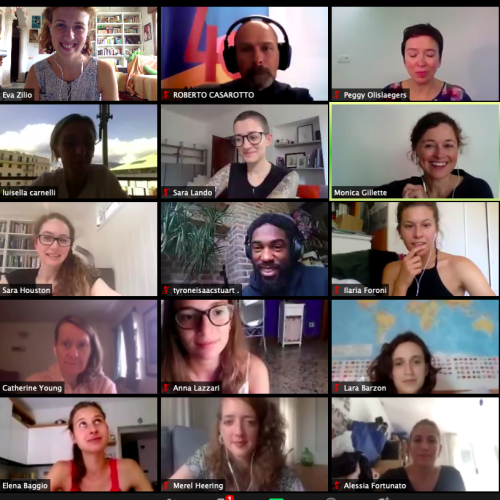
Day 1: 20th August 2020
The first day started at 10am and was focused on the theme of health. We were divided into four groups and assigned on rotation to the four dance artists for the morning practice. At 11am, we were all brought back to the main room where we started a conversation focused on how we define health and what do we need to be healthy. The conversations were guided by a team of facilitators (Merel Heering, Monica Gillette, Peggy Olislaegers, Roberto Casarotto and Tyrone Isaac Stuart), who have been working together since March to keep connected, sharing thoughts and reflections on the theme of well-being and structuring together the online sessions which we experienced.
The dialogue involved Ludovic Zahed, researcher working on the themes of vulnerability and minorities and queer imam founder of the first European inclusive mosque in Paris, and Julia Raynham, multidisciplinary artist trained as a sangoma (link between the ancestral and human worlds, specialist of herbal medicine, counsel in matters of psychological disturbance in Zulu, Swazi, Xhosa and Ndebele communities of Southern Africa). The guests shared with us their personal stories, relating the concept of health to the ones of community, spirituality, body, and art.
We were asked to share some reflections upon health via the Zoom chat. This was a powerful tool, during all the sessions, establishing an online form of conversation among the participants and, most of all, creating an archive of words, thoughts and feelings which started to articulate our shared vocabulary during these four days.
After the dialogue, all the Carte Blanche participants were brought to a dedicated room where we shared our “digestion time”. The digestion room lasted from 12.20am to 12.50am. In this time, we introduced each other and got to know our mates with a short presentation. We also exchanged some reflection on the morning session. At the core of our dialogue was the role of western culture in unhealthy life and lack of well-being, and the issue of common responsibility for an equal global health.
From 12.50am to 1pm we were brought back to the main room where we wrapped up and concluded the morning session. This structure was maintained throughout the festival.
As the afternoon program was not mandatory, we gathered again at 8pm for our working group led by Merel Heering and Tyrone Isaac Stuart. The session was structured as a “Window for feelings”, meant to be a space where to process what was going on during the day, sharing reflections and sensations and creating together a shared vocabulary to give voice to what we experienced. Merel and Tyron held for us a writing lab, through which we experienced different forms of writing to give shape and meaning to our thoughts.
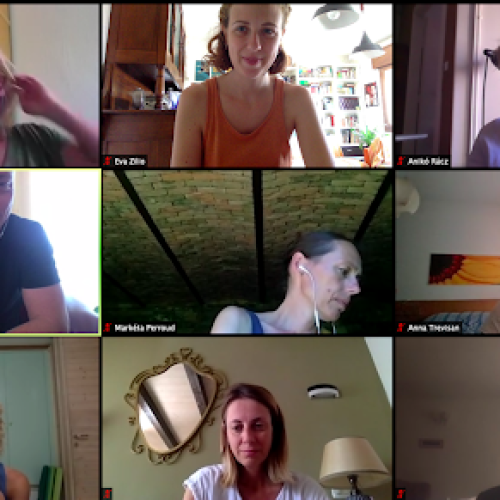
Day 2: 21st August 2020
The day started at 10am with another physical practice: each day we had the chance to meet and work with a different artist, who approached us with individual body language, way to express ourself and to embody the theme of the day. Friday’s focus was collaboration.
After the practice, we met three new guests: Mohamed Yusuf Boss, dancer, choreographer, teacher and theatre maker based in Groningen/Netherlands; Anna Cy Chan, practicing arts educator, performer, producer, curator and administrator for years and currently Dean of School of Dance at The Hong Kong Academy for Performing Arts; Jamila Johnson-Small, London-based dance artist. As on other days, the conversation was facilitated by Merel, Monica, Peggy, Roberto and Tyrone.
All of us were asked to turn off our cameras (guests and facilitators included), so that no one was visible on Zoom. This was done to invite us to focus on active listening, on inner and outer voices, trying to concentrate more deeply on the topic. We continued to use the chat in order to create a common archive of the session.
We were asked: what does collaboration mean to you? What is important about collaboration? How do you think about collaboration?
Each guest started to answer to these questions from their own perspectives and practices, passing the floor to each other by shifting to different “islands of thoughts”, investigating the theme of collaboration in relation to digital spaces, the global pandemic, intimacy, connectivity, balance of power.
It has been interesting to share our reflections in the Carte Blanche Digestion room, as we discussed about the difference between connection and collaboration, about approaching physical collaboration now that we know we can be a potential danger to each other due to the pandemic emergency, and especially about the possibility to establish new forms of collaboration completely online, without having the chance to meet each other personally. Will the results of our collaboration be the same? How will we inhabit spaces and times to build trust and reciprocal knowing?
Roberto Casarotto brought in the example of his encounter with Jakevis Thomason, dancer and activist with whom he started an online dialogue during the lockdown and who was then invited to be a digital guest of the 2020 B. Motion program.
In the evening workshop with Merel and Tyrone, we continued our process of self-questioning through writing, in an attempt to answer the following question: when do intimate relationship with others affect intimate relationship with self? We focused on two forms of writing: a self-affirmation and a love letter. Out of these two compositions, we put together a poem which we shared by chat with another participant.
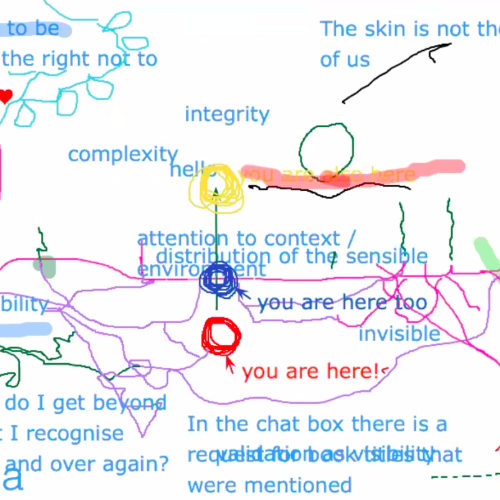
Day 3: 22nd August 2020
The third day was perceived as one of the most intense from an emotional point of view, focusing on the theme of equality. After the physical practice, we entered a dialogue with Daniel Blanga Gubbay, researcher in political philosophy and performance, based in Brussels and artistic director of the Kunsten Festival des Arts; Adesola Akinleye, artist scholar – senior lecturer at the Faculty of Arts and Creative Industries London and choreographer of the Company DancingStrong; Lester Arias Vizcuna, Venezuelan singer, songwriter, dancer and composer.
All guests and facilitators were asked to keep their cameras on in order to hold together the space. Each guest stepped in differently: Lester shared with us a poem which invited us to listen to the invisible:
“If I is we and will never be us
Yet it is
Can you listen to..?”
Adesola shared with us the need to exit the binary scheme we use to interpretate the world, asking what is left when we don’t use the word equality anymore. In turn, Daniel investigated what it means to look at the complexity of performing arts and the role of curators in finding ways to present what they decide to present. How do we frame artistic works in our contexts? What is the role of the spectator’s gaze in the consumption of artistic works? The conversation brought us to discuss the “right to opacity”: the right not to be reduced in order to be understood, to affirm one’s individuality without seeking compromises, going beyond the use of categories.
In the Carte Blanche digestion room, we reflected upon the economy of equality, asking ourselves how to find ways to be open to artists beyond the constraints of budget, audiences, and external limitations.
Also, we asked each other how to build the trust of our audiences, being able from one side to create a space where to be exposed to variety and to practice it, and, from the other, to guarantee economic survival to artists and institutions.
We acknowledged that it takes time to change traditional ways of working, but platforms for encounters such as the one we experienced during B.Motion are spaces to boost forward our capabilities and strengths, consolidating our networks and sharing best practices among each other.
In the evening, we worked with Merel and Tyrone on the sound and rhythm of our writing, trying to build an internal choreography among the lines of our poems. Then, again, we shared our composition by chat with another participant, who read it out loud for us.
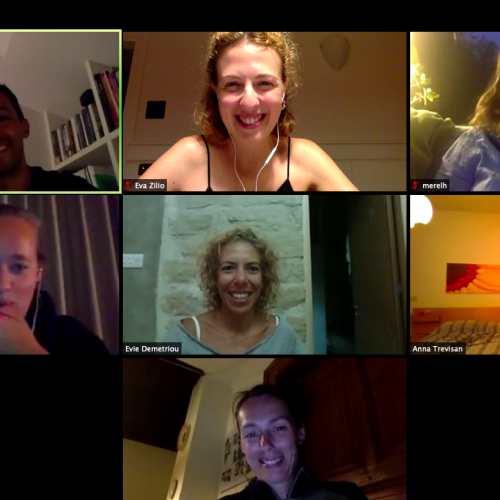
Day 4: 23rd August 2020
The last day started again at 10am with a physical practice. Once we were brought back to the common room, we focused on the theme of spirituality. We immediately started sharing what spirituality means to us. Via the chat, lot of interesting thoughts and words emerged, which were the basis of our reflection.
The artists who led the morning practices (Tyrone, Sangeeta and Bella) were asked: how does spiritual influence your art practice and the way you teach and create? Also, Ludovic and Julia – who were the guest of the first morning session – were invited to step into the conversation by bringing their personal approaches and reflections.
In our Carte Blanche digestion room, we used the chat function to share words and thoughts that resonated with us during the conversations.
Afterwards, we took advantage of this space to share some feedback among each other and to thank us for the time shared. The feedback I received, both during this live session and via email the following days, have been strongly positive.
In the last evening workshop led by Tyrone and Merel, we focused on storytelling, trying to connect challenging experiences we had in our personal and professional lives to spirituality.
We were asked to build a character and to approach our writing keeping in mind the following questions: what is sacred to you? How does the spiritual influence your art practice and the way you teach and create? In the end of the session, each participant read out loud the text produced in a sort of long collective poem. At the end of the session, we thanked each other and said goodbye, sure that we would have further chances to flourish the connections we established during this online B. Motion festival.
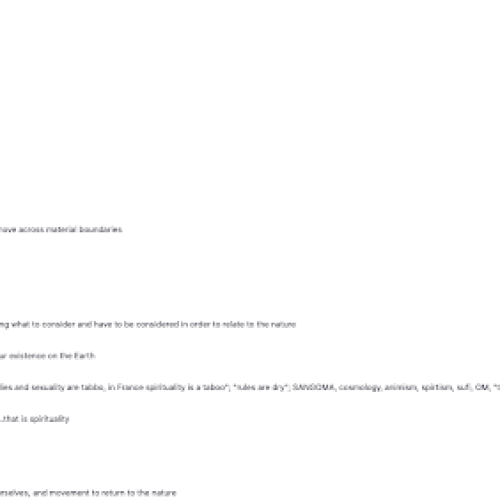
Conclusion
In conclusion, this B. Motion edition for our EDN Carte Blanche Group has been a very interesting space for collaboration and co-imagination, where we shared, informed each other and got connected, reflecting on key themes for the time we live in, for our daily practices and works.
What has been the biggest challenge, successfully achieved thanks to the amazing efforts of the Operaestate team, was to create a space for the participants to experience new ways to encounter each other.
Even if the online tool is of course a limitation if compared to a real physical encounter, in these very peculiar times we are living in, I believe that pursuing the festival (despite all the boundaries and restrictions) has been an act of beauty and resistance.
It is true that from one side we have been lacking spaces and moments for informal talks and more relaxed ways of getting to know each other. At the same time we suddenly entered via Zoom each other’s personal spaces, getting to know houses, offices, private spaces that are normally not part of professional encounters. Also, the chance to be able to join the program of the festival entirely online made us reflect upon the issue of accessibility: people from all over the world could simply step in and get connected just by opening up Zoom and entering the digital space.
Surely, this first experience of EDN Carte Blanche program completely online has to be considered as successful and strongly positive, as an inclusive, adaptive and flexible answer to the pandemic emergency and consecutive crisis we have been all experiencing.
It has been an opportunity to look from a different perspective at the changes and limitations we are living through and to re-define concepts as presence, spaces and times to produce and present artworks, finding new ways to inhabit the spaces designated for dance, both from a physical and a digital perspective.
Author of B.motion 2020 Carte Blanche report is Eva Zilio.